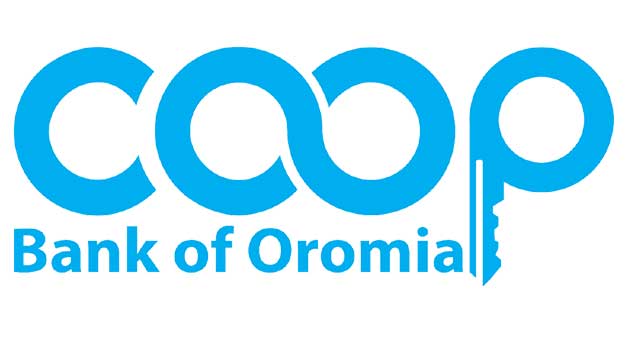
May 7 , 2022
By Tigist Solomon
Many businesses in Addis Abeba offer a variety of services to the public. Most that are well profitable operate for an extended period of time, often expanding their activities through new marketing strategies and techniques, thereby increasing sales and profits.
Entrepreneurship is indeed a growing phenomenon in Ethiopia, though in its early stages, either with the support of non-profits or using independent financing. For instance, most non-profit organisations, both local and international, support unemployed women and youth to engage in small businesses and generate income. They provide them with the necessary support, such as financial training, including saving and credit, as well as specific business-oriented vocational training. Subsequently, these women engage in commercial activities, mainly small businesses, that help them earn income and support themselves and their families.
The support from NGOs is primarily aimed at women with children and without income through collective or independent activities. The results are positive, where most beneficiaries of the program recognise the changes in their own and their families' well-being. The activity allows them to better support their children's educational and health outcomes; monitor their overall well-being closely; and meet household expenses as much as possible.
The realities of the business sector indicate that to be successful in any business, both hard and soft skills are required. These are two interrelated skills that work simultaneously to generate good profits. Common business skills include financial management, project planning and management, leadership, marketing, sales and customer service, communication and negotiation, problem-solving and networking. Most of the skills required are people-oriented, where interactions with internal and external stakeholders are necessary for a successful outcome. Therefore, customer service relations are a key factor for the success of any business.
Despite the common belief, customer relationship and management is a science that requires sound strategies and techniques that are relevant to the specific business and industry. Research has shown that the soft skills most applied in customer relations are persuasive speaking skills, empathy, adaptability, clear communication skills and agency. These are the skills we develop since childhood through day-to-day training and practice. The more we are trained and practice these required skills, the more we apply them in business, sometimes even unconsciously, to manage our customers well and meet their expectations.
The success of most of the prominent service-oriented organisations in Ethiopia is due to hard work in customer services and marketing but mostly due to the culture-specific services provided by professionals. The attitudes most required in customer relationships are patience, empathy, respect and politeness. People, in Ethiopia and elsewhere, accept these attitudes as positive and even integrate them naturally into our daily lives.
Most businesses in Ethiopia, including hotels, restaurants, cafes and retail stores, try to fulfil these qualities when providing services to customers. Indeed, they allow customers to benefit from a warm in-house service away from home. Consequently, the service offered generates a positive customer relationship where both customers and businesses achieve positive results. The former is satisfied with the services provided to them and get good value for the money spent, and the latter gains loyal clients allowing them to generate consistent profits.
Although most businesses try to fulfil the necessary requirements in customer relationship and management mentioned above, more consistency and reliability of the services provided are essential in the case of Ethiopia. Well-organised and industry and location-specific customer service training are necessary for service providers.
Subsequently, most entrepreneurial programmes, such as those supported by voluntary NGOs, should further integrate customer relationships and management training when working with women and young people. It will enable them to gain more successful outcomes with income-generating activities.
PUBLISHED ON
May 07,2022 [ VOL
23 , NO
1149]


Fortune News | Jun 14,2020

Viewpoints | Oct 16,2020

Radar | Mar 18,2023

Fortune News | Jan 05,2020

View From Arada | Sep 23,2023

Radar | Apr 13,2025

Commentaries | Aug 10,2019

Life Matters | May 29,2021

Radar | Jan 05,2020

Radar | Apr 20,2019

My Opinion | 131451 Views | Aug 14,2021

My Opinion | 127803 Views | Aug 21,2021

My Opinion | 125783 Views | Sep 10,2021

My Opinion | 123419 Views | Aug 07,2021

Dec 22 , 2024 . By TIZITA SHEWAFERAW
Charged with transforming colossal state-owned enterprises into modern and competitiv...

Aug 18 , 2024 . By AKSAH ITALO
Although predictable Yonas Zerihun's job in the ride-hailing service is not immune to...

Jul 28 , 2024 . By TIZITA SHEWAFERAW
Unhabitual, perhaps too many, Samuel Gebreyohannes, 38, used to occasionally enjoy a couple of beers at breakfast. However, he recently swit...

Jul 13 , 2024 . By AKSAH ITALO
Investors who rely on tractors, trucks, and field vehicles for commuting, transporting commodities, and f...

Jun 28 , 2025
Meseret Damtie, the assertive auditor general, has never been shy about naming names...

Jun 21 , 2025
A well-worn adage says, “Budget is not destiny, but it is direction.” Examining t...

Jun 14 , 2025
Yet again, the Horn of Africa is bracing for trouble. A region already frayed by wars...

Jun 7 , 2025
Few promises shine brighter in Addis Abeba than the pledge of a roof for every family...

Jun 29 , 2025
Addis Abeba's first rains have coincided with a sweeping rise in private school tuition, prompting the city's education...

Jun 29 , 2025 . By BEZAWIT HULUAGER
Central Bank Governor Mamo Mihretu claimed a bold reconfiguration of monetary policy...

Jun 29 , 2025 . By BEZAWIT HULUAGER
The federal government is betting on a sweeping overhaul of the driver licensing regi...

Jun 29 , 2025 . By NAHOM AYELE
Gadaa Bank has listed 1.2 million shares on the Ethiopian Securities Exchange (ESX),...